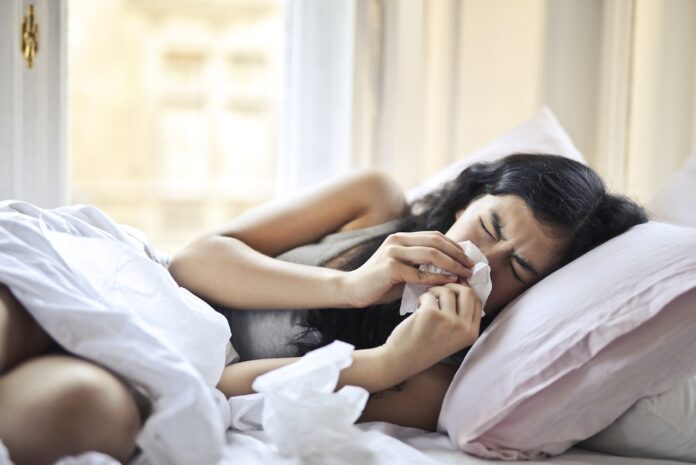
Spring has officially arrived, and as nights become lighter and flowers start to bloom, seasonal allergies are also a problem for millions of Brits.
Brand new research released by Online.Casino reveals the UK’s pollen hotspots for spring 2023.
Research conducted by the experts at Online.Casino analyses a study from Worcester University to reveal the average pollen catch across British regions. These figures are based on the average pollen count across spring for spring seasoned pollens.
The data reveals that the Southeast is the worst for hay fever sufferers, with a total pollen integral of 14,131 across the 92-day spring period (March-June) and an average daily pollen count of 153.60.
The second highest region is East Midlands, with a total pollen integral of 12,026 and an average daily pollen count of 130.72.
In third place is the West Midlands, with a total count of 6,403 and an average daily count of 69.60.
Whilst Northern Ireland has the lowest pollen count of only 1,225 across spring, with a daily average of 13.32.

* Pollen counts are measured per cubic metre
A spokesperson for Online.Casino commented on the findings:
“This spring residents across the southeast are likely to suffer most from symptoms of hay fever and asthma.
“Due to the southeast being heavily populated, urban pollution from diesel fumes tends to supercharge pollen particles, making them even more allergenic.
“The southeast has been known to have the most problem plants. Hazel is the most widespread, whilst Surrey is a birch hotspot.
“Meanwhile Northern Ireland is the region with the least amount of pollen. Currently, the forecast for cities including Derry has very low to no pollen.
“Approximately 20% of UK residents are hay fever sufferers, according to NHS data. It is extremely common for people to experience symptoms around this time of year, including eczema flare-ups, itchy eyes and runny noses.
“Whilst taking over-the-counter antihistamines daily can help to reduce allergy symptoms, if you suffer badly, it is also recommended to try and minimise general exposure to pollen.”
Below, experts at Online.Casino share 11 ways to minimise pollen exposure:
1. Avoid cutting or walking on grass
2. Avoid keeping fresh flowers in the house
3. Shower and change your clothes after you have been outside
4. Keep windows and doors closed as much as possible
5. Apply Vaseline around your nostrils to trap pollen
6. Avoid smoking
7. Avoid drying clothes outside where they can catch pollen
8. Try to prevent allowing pets to carry pollen indoors
9. Wear sunglasses to stop pollen getting into your eyes
10. Hoover regularly and dust using a damp cloth
11. Buy a pollen filter for air vents in your car
Credit to online.casino who provided the above post.
Help keep news FREE for our readers
Supporting your local community newspaper/online news outlet is crucial now more than ever. If you believe in independent journalism, then consider making a valuable contribution by making a one-time or monthly donation. We operate in rural areas where providing unbiased news can be challenging. Read More About Supporting The West Wales Chronicle























